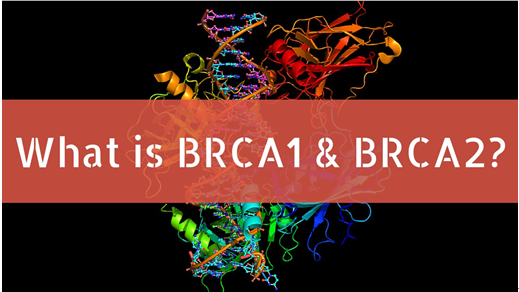Introduction:
BRCA1 (breast cancer susceptibility gene 1, breast cancer susceptibility gene 1) is the first directly associated with hereditary breast cancer susceptibility genes in 1990 scientists found. In addition to breast cancer, ovarian cancer and other cancers, a new study was first discovered, BRCA1 involved in regulating learning and memory function, associated with Alzheimer's disease.

BRCA1 (breast cancer susceptibility gene 1, breast cancer susceptibility gene 1) is the first directly associated with hereditary breast cancer susceptibility genes in 1990 scientists found. According to the study confirmed that women BRCA1 mutation carriers risk of breast cancer by up to 60% -80%, but also significantly increase the risk of ovarian cancer (15% -45%).
This is why the 38-year-old Hollywood actress Angelina Jolie • carry a genetic disease because BRCA1 mutations, in 2013 and 2015 were carried out preventive double mastectomy and ovarian, fallopian tube surgery.
Susceptibility genes BRCA1 and breast cancer, ovarian cancer......

In fact, BRCA1 gene is an inhibitory good genes malignancies, which encodes a protein because it contains multiple functional areas, with the other gene, protein interaction and thus have a wide range of biological functions, including inhibition of tumor cell cycle regulation, DNA damage repair. It can be expected that once a mutation in the BRCA1 gene, or the interaction of proteins associated with the BRCA1 protein, gene mutations, is likely to affect their normal physiological function, causing an increased risk of cancer.
Studies have demonstrated that mutations in the BRCA1 gene in ovarian cells by interfering with biochemical signal level, the indirect cause of ovarian cancer. BRCA1 mutations also affect the ovaries regulate the menstrual cycle and pituitary, progesterone and other hormones affect regulation, thus increasing cancer may. In addition to breast cancer, ovarian cancer, BRCA1 gene mutation is also associated with prostate cancer, colon cancer and the like.Nature published a new discovery: BRCA1 protein associated with Alzheimer's disease
November 30, Nature published child "Nature Communications" published an article, the first time that BRCA1 involved in regulating learning and memory function, associated with Alzheimer's disease. Articles made from the Gladstone Institute (Gladstone Institutes) team of scientists completed, they first discovered BRCA1 protein in neurons also plays an important role.
BRCA1 protein decreased effects on neuronal DNA damage repair
One of BRCA1 protein function is known, is to repair damaged DNA, and in the neuronal cells, DNA double-strand breaks is a normal phenomenon. The researchers speculate that nerve cells and repair DNA workout in a cycle, the normal cycle is to ensure that the key to learning and memory function. Once, damage and repair imbalances, these basic functions would be adversely affected.
To test this reasoning, the research team believed to inhibit the expression of BRCA1 protein test rat neuronal cells. It was found that the key to reducing the amount of protein, leading to the accumulation of DNA damage and nerve contraction, thus affecting cognition and memory in mice.
Taking into account the Alzheimer's have similar cognitive decline, characterizing pathological nerve cell atrophy, the researchers further questioned whether Alzheimer's disease and related BRCA1 protein expression?

BRCA1 protein expression was lower in patients with nerve cells in Alzheimer's disease
To unlock the puzzle, the research team of the brains of patients with Alzheimer's disease died as research material, focuses on BRCA1 protein expression of neuronal cells. Data show that, compared with normal neuronal expression of BRCA1 protein in patients with Alzheimer's disease reduced by 65% -75%.
In order to clarify the reasons for decreased expression of researchers with rich β- amyloid cells cultured neuronal cells were found in the brains of patients with Alzheimer's disease enriched β- amyloid may inhibit the expression of BRCA1 protein This means that BRCA1 protein may be an important cause of Alzheimer's patients brain repair damaged DNA.
Similarly, the prevalence of rat brain amyloid accumulation, and decreased expression of BRCA1 protein. Currently, the research team is to verify BRCA1 protein is highly expressed, is able to prevent or reverse the neuronal atrophy and memory loss problems.
Lennart Mucke, director of the Gladstone Institute of Neurological Diseases Center, said: "The BRCA1 repair factors, including clinical science operations, will likely become the final stop Alzheimer's disease in patients with nerve damage and cognitive decline medical treatment By normalizing BRCA1 protein content and function, it is expected to be able to protect neurons from excessive DNA damage."
Reference:
DNA repair factor BRCA1 depletion occurs in Alzheimer brains and impairs cognitive function in mice
Souce: NovoPro 2015-12-03
